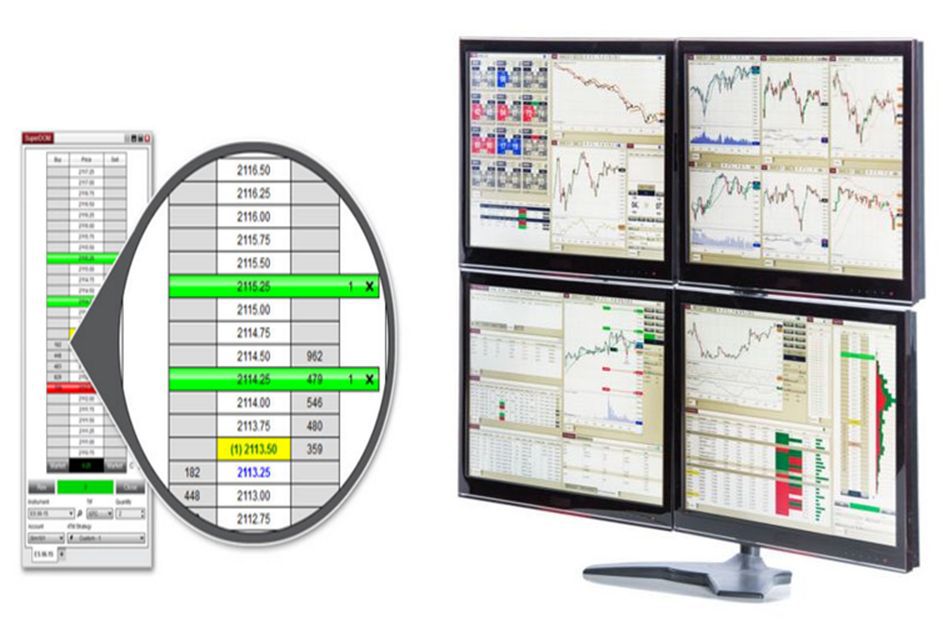Did you know that futures and options trading is legal in the UK? In fact, they have been popular trading methods for many. In this article, we’ll look at how this type of trading works and some of the benefits it brings. We’ll explore some of the risks involved in trading futures and options and how to manage those risks. Read on if you’re interested in getting started in trading futures and options contracts.
What are futures and options contracts, and how do they work?
A futures contract is an agreement to buy or sell an asset at a set price on a future date. They are traded on exchanges and can be used to speculate on the price movement of various assets, including commodities, currencies, stocks, and indices.
An options contract gives the holder the right without the obligation to purchase or sell an underlying asset at a set price for a certain period. Options contracts are also traded on exchanges and can be used to speculate on the price movement of various assets.
Futures and options trading in the UK is regulated by the Financial Conduct Authority (FCA). The FCA requires firms that trade futures and options authorised by them, and you can find a list of authorised firms on the FCA website.
Futures and options trading in the UK is conducted through regulated exchanges such as the London Metal Exchange (LME) and the Intercontinental Exchange (ICE). These exchanges offer a variety of contracts to trade, including commodities, currencies, stocks, and indexes.
When you trade futures or options, you must open an account with a broker that offers access to the exchange you want to trade on. Your broker will provide you with a trading platform that you can use to place your trades.
The benefits of futures trading
Futures trading can offer many benefits, including:
The main benefit of futures trading is that it allows you to speculate on the price movement of various assets without owning the underlying asset. It means that you can take a position on the price of an asset without having to have the asset in your possession.
Another benefit of futures is that it offers leveraged exposure to the underlying asset. It means you can control a more prominent position than you would be able to if you bought the asset outright.
For example, let’s say you wanted to take a long position in gold. If you were to buy gold bullion, you would need to purchase around 13 ounces of gold at the current price of £1,300 per ounce, costing you £16,900. Let’s say you wanted to take the same long position in gold but using futures contracts. One futures contract represents 100 ounces of gold. So, if you were to buy one futures contract at the current price of £1,300 per ounce, you would only need to put up £13,000 as a margin.
It means that you have leveraged your exposure to gold by 7.69 times.
The benefits of options trading
Options trading can offer many benefits, including:
Like futures trading, options trading allows you to speculate on the price movement of various assets without owning the underlying asset. It means that you can take a position on the price of an asset without having to have the asset in your possession.
Another benefit of options is that it offers limited risk exposure. When you buy an options contract, you are only responsible for the premium you paid, which means that your potential loss is limited to the premium you paid. Options trading also allows you to trade various assets, including commodities, currencies, stocks, and indices.
The different types of futures and options contracts available
Let’s look at some standard contracts available:
Currency futures and options
It is a contract to buy or sell a specified amount of a currency at a set cost on a specific date in the future. Currency futures are traded on exchanges such as the Chicago Mercantile Exchange (CME).
Currency options are similar to currency futures, except that with an option, you have the right without the obligation to purchase or sell the underlying currency. Currency options are traded on exchanges such as the Philadelphia Stock Exchange (PHLX).
Stock index futures and options
A stock index is a measure of the performance of a group of stocks. The most popular stock indexes include the Dow Jones Industrial Average (DJIA), the S&P 500 Index, and the NASDAQ Composite Index.
The bottom line
Options and futures trading can expose traders to exciting opportunities. As they can be traded across markets, traders should note that that depending on the underlying asset, they may have different market hours, and certainly, they will be most liquid at different times of the day. However, when timed right, options and futures trading can be just as lucrative as ‘regular’, ‘traditional’ trading. Before getting started, traders should search for a reputable broker licensed in the UK and ensure they understand contract specifications when they make each trade.


